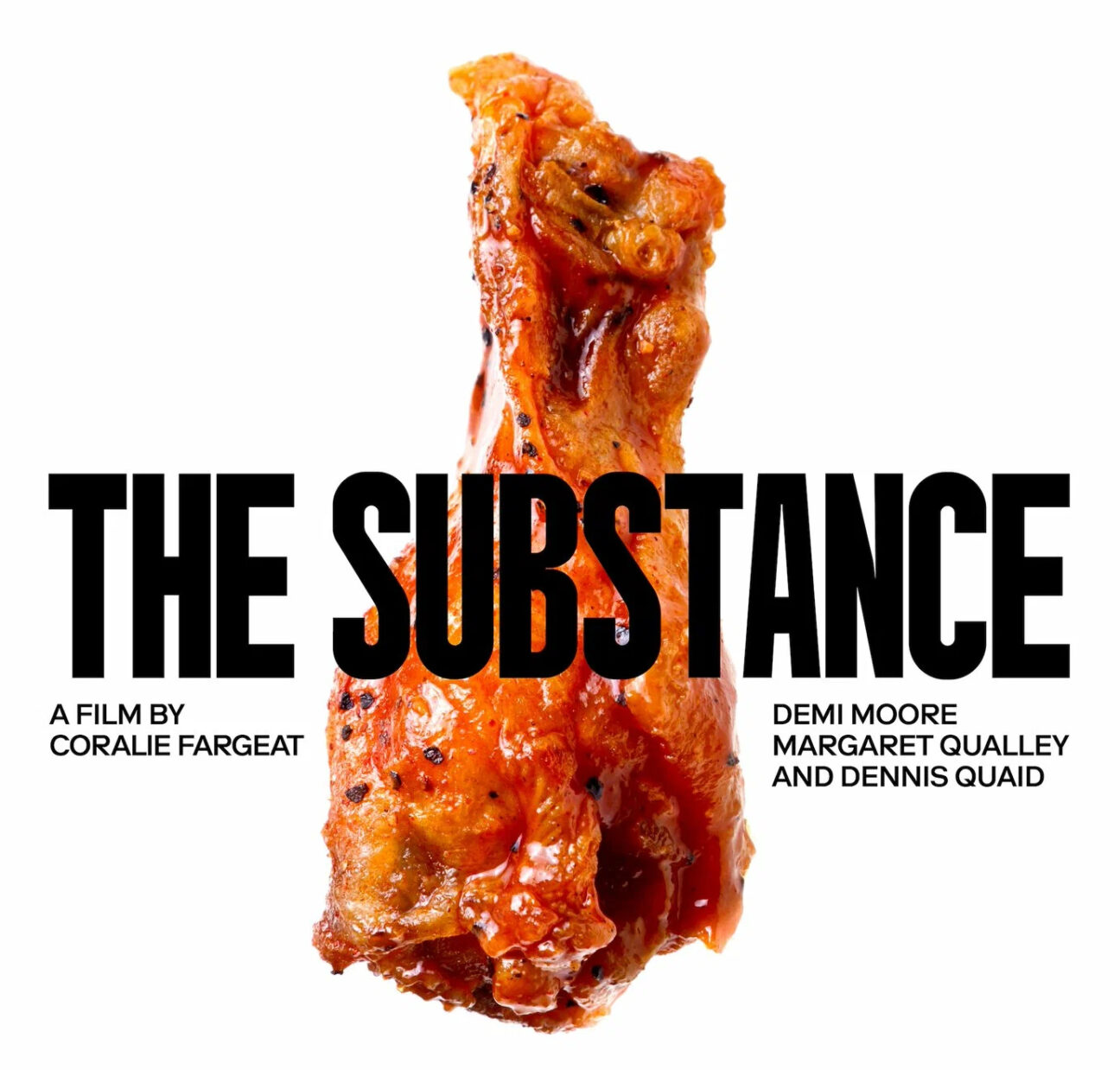Director is Dissatisfied: “Substance” – Sometimes My Arms Bend Back
First and foremost, “Substance” is an exceptionally unique work, distinguished by its technical execution, dramaturgy, and narrative rhythm. It may well be the year’s most potentfilm, given its immence potential to affect audiences. Yet, something feels very wrong.

A direct descendant of 70s and 80s B-movie shockers, “Substance” has metamorphosed into an A-list festival favorite, winning the Best Screenplay Award at Cannes-2024. It treats fear not as a primitive abstract energy permeating everything visible, but as a physical immediacy. The film borrows heavily—and unabashedly—from the bank of visual culture spanning the past half-century, from the monstrosities on Bacon’s canvases to Benny Benassi’s music videos and the transgressive cinema of Nicolas Winding Refn,often extracting more from these sources than the original creators intended.

From the very first frames, long before the horrific moments emerge, Fargeat cultivatesan atmosphere of discomfort through a rich arsenal of cinematic devices. Her primary toolsinclude hyper-detailing, “binocular”perspectives, liminal spaces, and bass frequencies pushed to their peaks. The enemy, however, is swiftly identified—the patriarchy, personified by the repulsive producer Harvey (!), who dismisses 60-year-old fitness show host Elizabeth Sparkle (Demi Moore). He seeks a new sexy starlet to boost ratings and satiate the modern audience. Elizabeth can become this coveted ingénue by “activating herself” through an injection of “Substance,” a cellular division accelerant. This results in the emergence of the flawless Sue (Margaret Qualley), boasting smooth skin and perfect physique, equally adept at handling a drill or gyrating for Harvey’s new production. However, substance is no benevolent fairy godmother’s magic: every seven days, Elizabeth and Sue must exchange bodies to sustain each other.

Youthful Sue fully exploits its charm and folly—we witness the gradual disintegration of Elizabeth’s personality and body. Here, Fargeat excels where her predecessors did: she skillfully subjects her audience to a barrage of somatic perversions, meticulously playing out the dark permutations of her vision. The narrative’s focal point shifts from mere bodily events to the dynamics of their metamorphoses. The climax unfolds as a bloodbath during the New Year’s TV-show, catalyzed by a “third entity”—a “being-non-being” that emerges from the beauty Sue, a terrifying spawn of perfection mania.

A significant flaw in Fargeat’s film is the absence of any indication that the consequences of new ideas colliding with reality can be assimilated or reconciled. The film’s trajectory spirals deeper into a vortex of extreme corporal manifestations, continually pushing newextremes; must progress invariably be accompanied by brutality and violence? “Substance” does not offer adequate answers, nor any meaningful intuitions: its considerableconceptual and visual capital is directed solelytowards producing shock value, attempting to captivate those ready to switch to any of other visual offerings.

Fargeat’s preoccupation with the representation of identity and otherness, coupled with an almost compulsive drive to generate shock content, overshadows the clarity of her artistic expression, with film’s aestheticstaking precedence over logic. All becoming means of manipulation. The central lesson of “Substance” isn’t that exploring beyond the ordinary is impractical, but rather a reminder that every creation and action begets consequences that neither the author nor any other entity can foresee, control or prevent.












